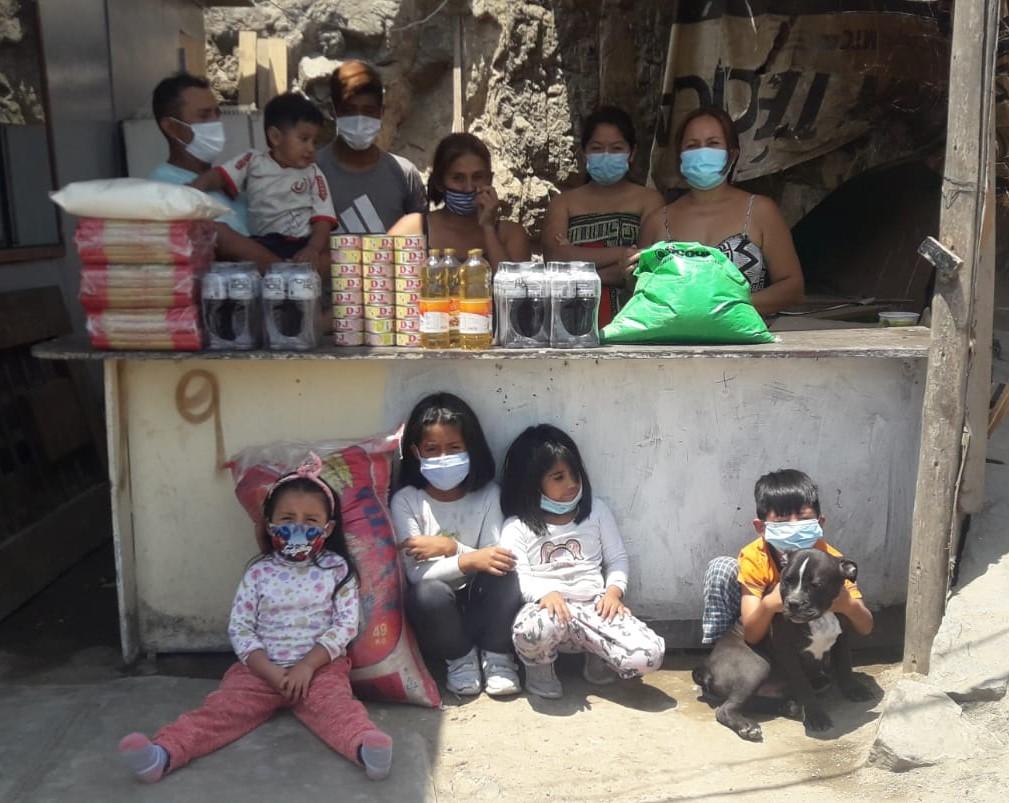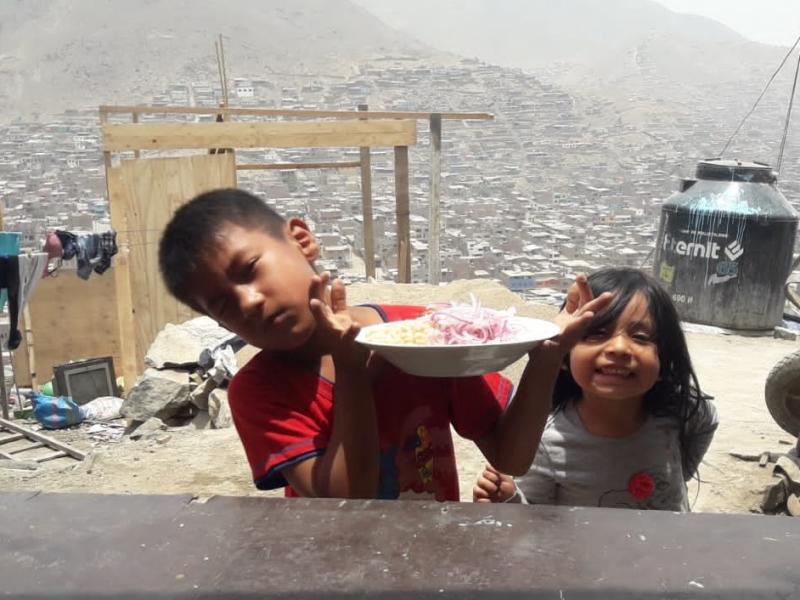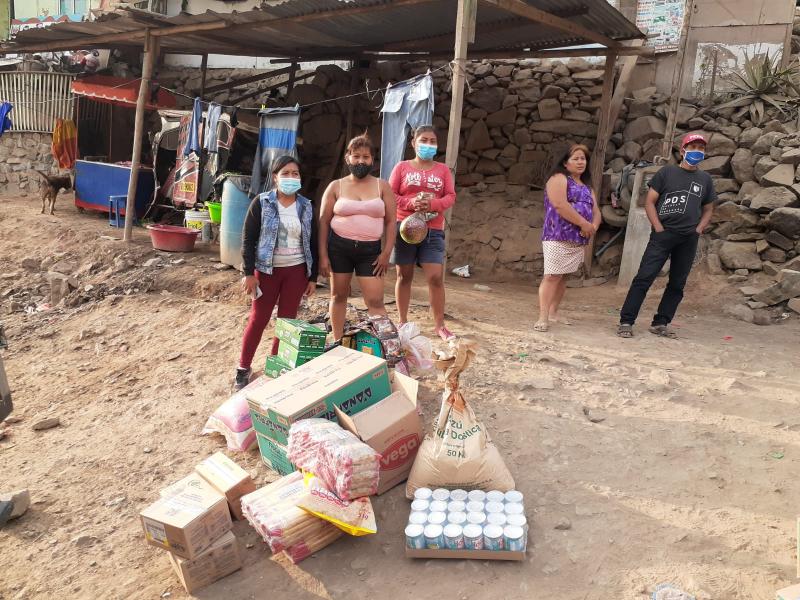David MacPherson

Exactly one year ago the first two-week COVID lockdown began in Peru. I still remember thinking; ‘Two weeks? We can handle that’. Two weeks became two months and two months became two years; we are, in any case, into the second year.
In previous newsletters I’ve shared about one way in which OSA has responded to the crisis; the provision of emergency food aid to over 30 soup kitchens that have sprung up across Collique. On this occasion I want to share with you some of the exciting outcomes of this project and the reasons why we have decided to keep the project going through 2021.

Firstly, the emergency food aid provided helped c. 2500 people for a critical seven-month period stave off the real and incessant onslaught of poverty and malnutrition. In doing so we were able to demonstrate the love of Jesus to the community in a tangible way.
Secondly, a further unintended but welcome outcome has been the establishment of strategic relationships with communities across Collique and a groundswell of goodwill towards OSA and the Light of Hope congregation. This is opening doors for ministry across Collique.
Thirdly, the establishment of relationships with partner organizations such as the Banco de Alimentos (a food distribution charity), the Bible Society, and the Bible League will assist OSA in its continuing ministry during and beyond the pandemic. We are grateful to God that our reputation as a responsible and capable organization at the front lines of social ministry has been significantly enhanced.

Providing food aid to so many soup kitchens doesn’t come cheap (last year the cost was c. $65,000) and the plan was to wrap things up in 2020, but we’re carrying on through 2021 and these are the key reasons why.
Firstly, a critical need remains. The ‘National Statistics Institute’ of Peru has estimated that between February and December of 2020 the percentage of the Peruvian population ‘in poverty’ has grown from 20% to 34% (6.4 million to 11.2 million). Those areas, like Collique, where most of the population are in the ‘informal’ economy are disproportionately affected.
Secondly, at present no other bodies, public or private, are providing anything other than occasional support to the soup kitchens. In the event that OSA were to withdraw support there is the real prospect that many soup kitchens would cease to operate and expose hundreds of families to the real threat of hunger and malnutrition.
Thirdly, continuing support of the soup kitchens will allow us to further cultivate relationships in the community and open the door to further and more significant ministry opportunities. Please pray that we would grasp these opportunities wisely and energetically.
From all of the OSA team, in the States and Peru, and especially on behalf of hundreds of needy families in Collique a big thank you to all of you who made this possible. Please continue partnering with us as we continue to share bread for the belly and living bread for the soul.
David MacPherson, Executive Director for Operación San Andrés in Peru, narrates this video with additional information about our partnerships with soup kitchens in Collique.

